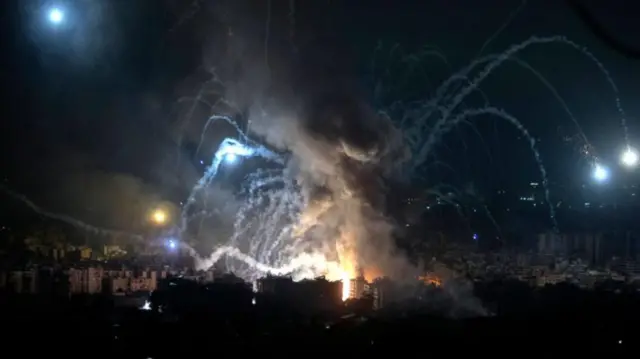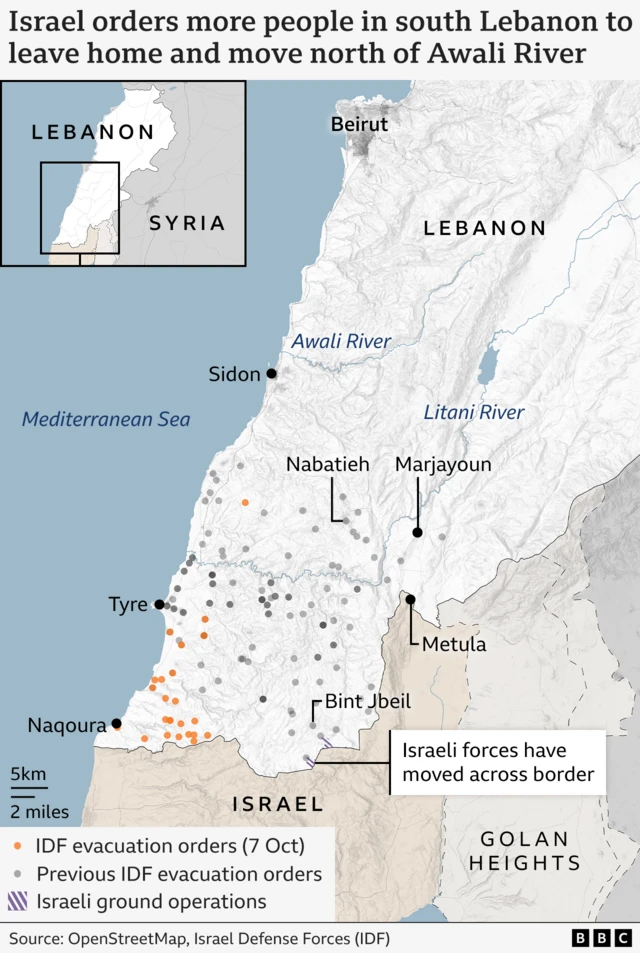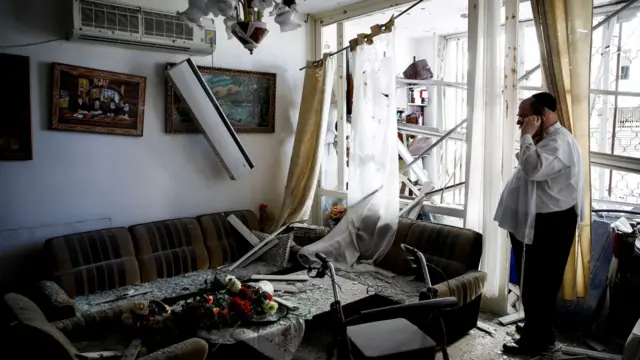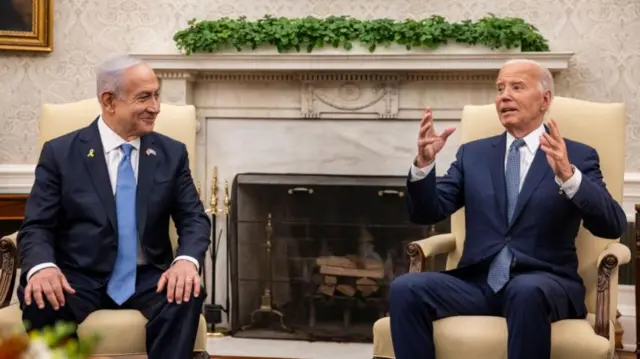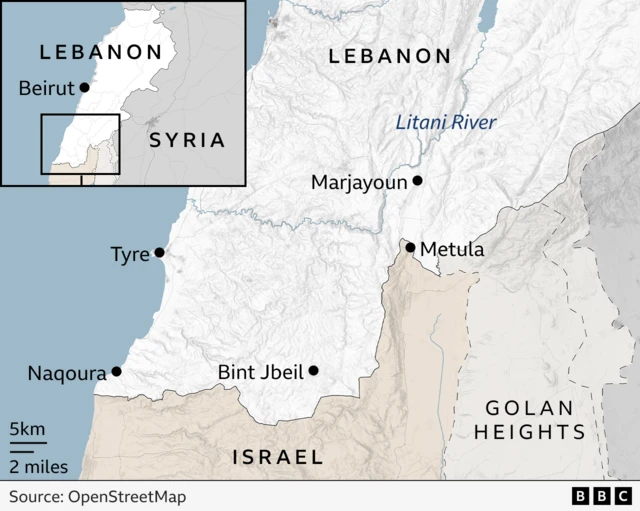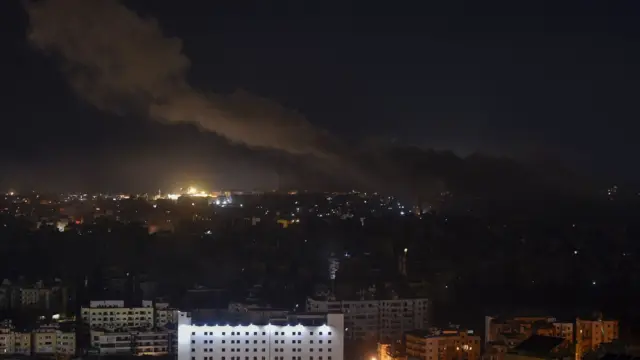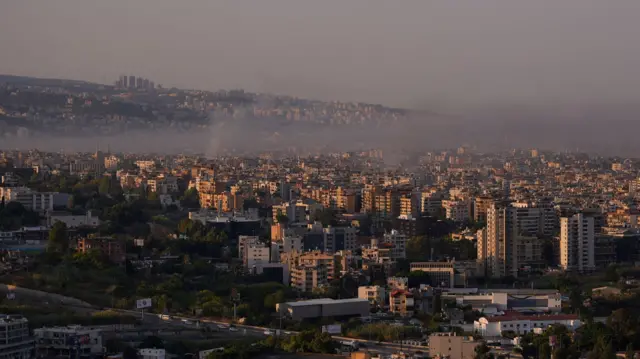
Hezbollah defiant, but significantly weakenedpublished at 09:46 BST 9 October 2024
 Hugo Bachega
Hugo Bachega
Middle East correspondent, in Beirut
Naim Qassem, the deputy head of Hezbollah, is now one of the few senior members of the group still alive.
Yesterday, he reappeared in a televised speech, delivered from an undisclosed location, to mark one year since Hezbollah started firing rockets at Israel.
The group has always said it is acting in solidarity with Palestinians in Gaza amid Israel’s war against Hamas, and that its attacks would only stop with a ceasefire there.
Now, Hezbollah is fighting its own war against Israel at home.
There were, unsurprisingly, defiant words in his speech but perhaps the most significant part was what he did not say. Qassem said he supported efforts of the Speaker of the Lebanese Parliament, a Hezbollah ally, to secure a ceasefire.
He did not, however, mention a pause in hostilities in Gaza as a pre-condition.
It is still not clear whether this marks a change in Hezbollah’s position. But the group has been significantly weakened, with its infrastructure battered and most of its leadership eliminated.
More than 2,000 people have been killed across Lebanon in the past year, and 1.2 million forced to flee their homes more recently. A country already exhausted by years of crises is now under even more pressure.
But that does not mean a ceasefire could be imminent. From an Israeli perspective, there is no incentive for one.
This campaign has been extremely successful in degrading the group - Hezbollah seems unable to organise any significant response, and it is very likely that Israeli military officials are saying it is time to continue and expand this offensive, not to stop.

